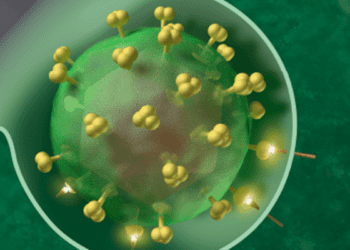Testosterone treatment for hypogonadism did not reduce the risk of fractures
1. In this randomized controlled trial, topical testosterone was not superior to placebo in reducing the risk of fractures in men with clinical hypogonadism.
2. The rate of fractures was higher among men receiving testosterone therapy compared to placebo.
Evidence Rating Level: 1 (Excellent)
Study Rundown: Hypogonadism in men, from pituitary and testicular causes, as well as an adverse effect of prostate cancer therapy, has been associated with an increased risk of fractures. Testosterone treatment has been shown to improve bone density and quality based on radiographic and computed tomography evidence. Nevertheless, the long-term impact of these changes on the risk of clinical fracture is unclear. The current study was a subtrial of a double-blind, randomized, placebo-controlled trial to assess the effect of topical testosterone therapy on the rate of fractures among middle-aged and older men with clinical hypogonadism. At the median follow-up of 3.19 years, there was no significant reduction in the incidence of clinical fractures among the testosterone recipients compared to placebo. Conversely, those receiving testosterone appeared to have a higher incidence of fractures across all fracture endpoints. The study results were unexpected and differed from the previous findings on testosterone’s impact on bone structures. It was speculated that testosterone could decrease cortical bone and, subsequently, bone strength. Nonetheless, it provided evidence of a previously unknown risk of fractures from testosterone therapy for men with hypogonadism.
Click here to read the study in NEJM
In-Depth [randomized controlled trial]: The current study was a subtrial of a double-blind, randomized, placebo-controlled trial to assess testosterone therapy in middle-aged and older men with hypogonadism. Male participants between 45 and 80 years of age with clinical hypogonadism, defined by two-morning testosterone concentrations of less than 300ng/dL symptoms of hypogonadism and pre-existing cardiovascular disease or an increased risk of cardiovascular disease. Exclusion criteria included testosterone concentration less than 100ng/dL and health conditions that could worsen with testosterone therapy, such as prostate cancer and severe untreated sleep apnea. Within this study’s analysis, 5,204 participants were randomized 1:1 to receive either a testosterone or placebo gel to apple daily. Participants were subsequently asked during visits if they had had a fracture since their previous visit. If they responded yes, their medical records were obtained, and their fractures adjudicated. The primary fracture endpoint was time-to-event of the first clinical fracture, excluding those of the sternum, digits, facial bones, and skulls. Other fracture endpoints included time to first non-high-impact clinical fracture, fracture-free survival, and time to any major osteoporotic fracture (hip, humerus, wrist, and spine). At the median follow-up period of 3.19 years, a clinical fracture had occurred in 3.50% of the participants in the testosterone group and 2.46% of the placebo group (hazard ratio, 1.43; 95% confidence interval, 1.04 to 1.97). Furthermore, the hazard ratios for fractures within all fracture endpoints were higher in the testosterone group compared to the placebo. These results demonstrated a previously unknown risk of fracture from testosterone treatment for middle-aged and older men with hypogonadism and prompted further investigation into this potential adverse effect.
Image: PD
©2024 2 Minute Medicine, Inc. All rights reserved. No works may be reproduced without expressed written consent from 2 Minute Medicine, Inc. Inquire about licensing here. No article should be construed as medical advice and is not intended as such by the authors or by 2 Minute Medicine, Inc.








